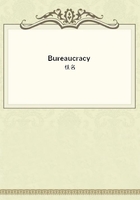
第39章 THREE-QUARTER LENGTH PORTRAITS OF CERTAIN GOVERNME
The last of the individuals belonging to these bureaus who merits a sketch here is the little La Billardiere. Having, to his great misfortune, lost his mother, and being under the protection of the minister, safe therefore from the tyrannies of Baudoyer, and received in all the ministerial salons, he was nevertheless detested by every one because of his impertinence and conceit. The two chiefs were polite to him, but the clerks held him at arm's length and prevented all companionship by means of the extreme and grotesque politeness which they bestowed upon him. A pretty youth of twenty-two, tall and slender, with the manners of an Englishman, a dandy in dress, curled and perfumed, gloved and booted in the latest fashion, and twirling an eyeglass, Benjamin de la Billardiere thought himself a charming fellow and possessed all the vices of the world with none of its graces. He was now looking forward impatiently to the death of his father, that he might succeed to the title of baron. His cards were printed "le Chevalier de la Billardiere" and on the wall of his office hung, in a frame, his coat of arms (sable, two swords in saltire, on a chief azure three mullets argent; with the motto; "Toujours fidele").
Possessed with a mania for talking heraldry, he once asked the young Vicomte de Portenduere why his arms were charged in a certain way, and drew down upon himself the happy answer, "I did not make them." He talked of his devotion to the monarchy and the attentions the Dauphine paid him. He stood very well with des Lupeaulx, whom he thought his friend, and they often breakfasted together. Bixiou posed as his mentor, and hoped to rid the division and France of the young fool by tempting him to excesses, and openly avowed that intention.
Such were the principal figures of La Billardiere's division of the ministry, where also were other clerks of less account, who resembled more or less those that are represented here. It is difficult even for an observer to decide from the aspect of these strange personalities whether the goose-quill tribe were becoming idiots from the effects of their employment or whether they entered the service because they were natural born fools. Possibly the making of them lies at the door of Nature and of the government both. Nature, to a civil-service clerk is, in fact, the sphere of the office; his horizon is bounded on all sides by green boxes; to him, atmospheric changes are the air of the corridors, the masculine exhalations contained in rooms without ventilators, the odor of paper, pens, and ink; the soil he treads is a tiled pavement or a wooden floor, strewn with a curious litter and moistened by the attendant's watering-pot; his sky is the ceiling toward which he yawns; his element is dust. Several distinguished doctors have remonstrated against the influence of this second nature, both savage and civilized, on the moral being vegetating in those dreadful pens called bureaus, where the sun seldom penetrates, where thoughts are tied down to occupations like that of horses who turn a crank and who, poor beasts, yawn distressingly and die quickly.
Rabourdin was, therefore, fully justified in seeking to reform their present condition, by lessening their numbers and giving to each a larger salary and far heavier work. Men are neither wearied nor bored when doing great things. Under the present system government loses fully four hours out of the nine which the clerks owe to the service, --hours wasted, as we shall see, in conversations, in gossip, in disputes, and, above all, in underhand intriguing. The reader must have haunted the bureaus of the ministerial departments before he can realize how much their petty and belittling life resembles that of seminaries. Wherever men live collectively this likeness is obvious;in regiments, in law-courts, you will find the elements of the school on a smaller or larger scale. The government clerks, forced to be together for nine hours of the day, looked upon their office as a sort of class-room where they had tasks to perform, where the head of the bureau was no other than a schoolmaster, and where the gratuities bestowed took the place of prizes given out to proteges,--a place, moreover, where they teased and hated each other, and yet felt a certain comradeship, colder than that of a regiment, which itself is less hearty than that of seminaries. As a man advances in life he grows more selfish; egoism develops, and relaxes all the secondary bonds of affection. A government office is, in short, a microcosm of society, with its oddities and hatreds, its envy and its cupidity, its determination to push on, no matter who goes under, its frivolous gossip which gives so many wounds, and its perpetual spying.